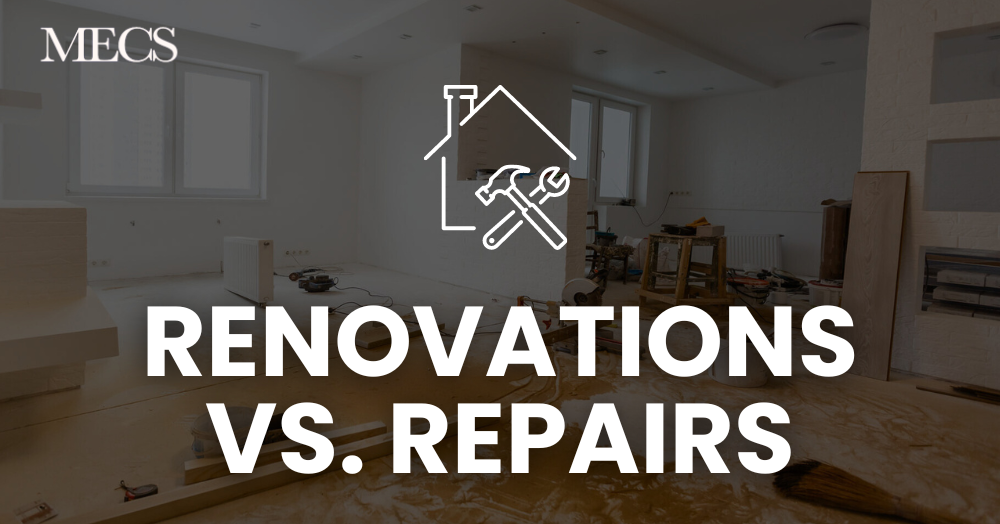Whether you're looking to sell your property or simply invest in its long-term value, understanding the distinction between repairs and renovations can make all the difference. Let's delve into the world of home improvements and explore which ones offer the best return on investment in the UK property market.
Repairs: Laying the Foundation
Before you consider any major renovations, it's essential to address any underlying repairs. Repairs are the necessary fixes that ensure your property is structurally sound, safe, and functional. Neglecting these issues can not only decrease the value of your property but also make it less appealing to potential buyers.
Roof Repairs:
A leaking or damaged roof can lead to significant problems like water damage, mould growth, and compromised insulation. Repairing or replacing your roof is a vital investment that not only improves the property's aesthetic appeal but also prevents future issues.
Electrical and Plumbing:
Outdated or faulty electrical and plumbing systems can be potential safety hazards. Upgrading these systems not only adds value but also ensures the safety and functionality of your property.
Structural Repairs:
Issues like foundation cracks, sagging floors, and deteriorating walls need to be addressed before any cosmetic renovations. Buyers are often wary of properties with structural problems, and fixing these issues can significantly enhance your property's marketability.
Renovations: Elevating Your Property's Appeal
Once your property's foundation is solid, it's time to consider renovations that can increase its value and appeal. Renovations are more extensive than repairs and involve upgrading or modernising various aspects of your property to attract buyers and potentially yield a higher selling price.
Kitchen Upgrades:
The kitchen is often the heart of a home. Upgrading it with modern appliances, quality countertops, and appealing cabinetry can greatly enhance your property's value. A well-designed and functional kitchen is a major selling point for many buyers.
Bathroom Remodeling:
Bathrooms are another area where investments pay off. Updated fixtures, tiles, and vanities can give a fresh and inviting look to your property. Adding an extra bathroom or en-suite to a bedroom can also be a game-changer, especially in larger homes.
Energy Efficiency Improvements:
As environmental awareness grows, energy-efficient upgrades like double-glazed windows, improved insulation, and energy-efficient appliances are becoming more appealing to buyers. These improvements not only save on utility bills but also attract eco-conscious buyers.
Conclusion:
In the world of property, distinguishing between repairs and renovations is crucial for adding value to your property. Starting with essential repairs lays the groundwork for a solid investment. Once your property is structurally sound, well-planned renovations can elevate its appeal and potentially yield a higher return on investment when it's time to sell. From upgraded kitchens and bathrooms to energy-efficient improvements, each renovation can contribute to a more enticing and valuable property in the eyes of potential buyers. Remember, that after preparing your property for sale, the next most important step in selling your property is getting the right estate agent involved, so get in contact now!
0121 681 6327
info@mecsproperty.co.uk






